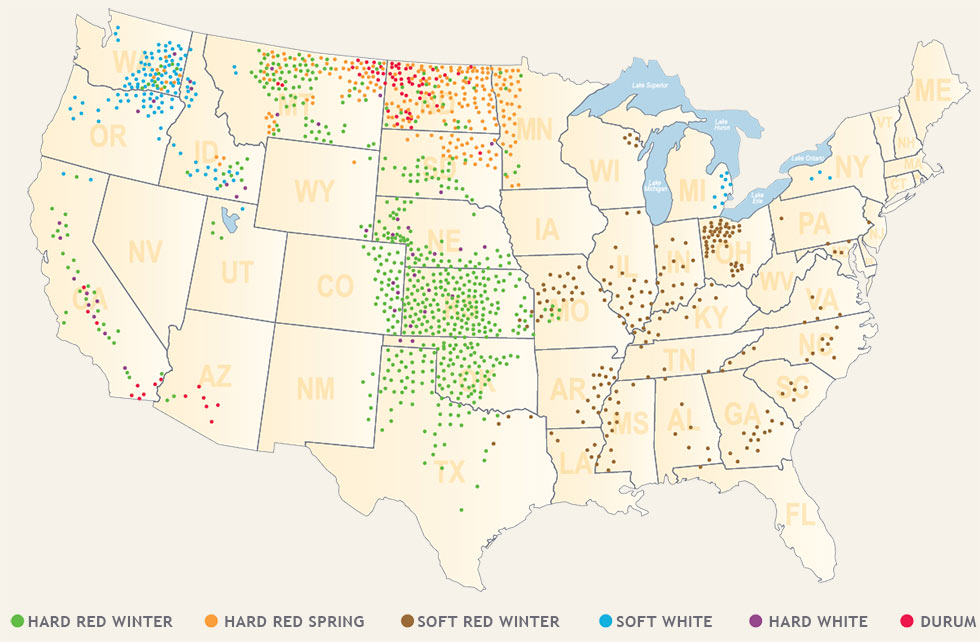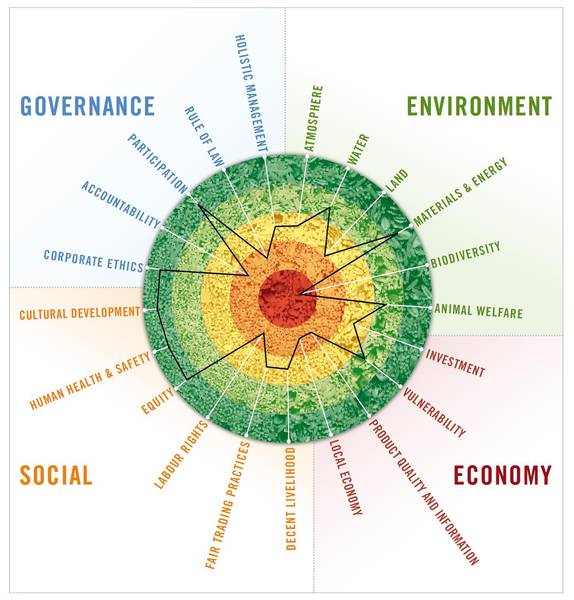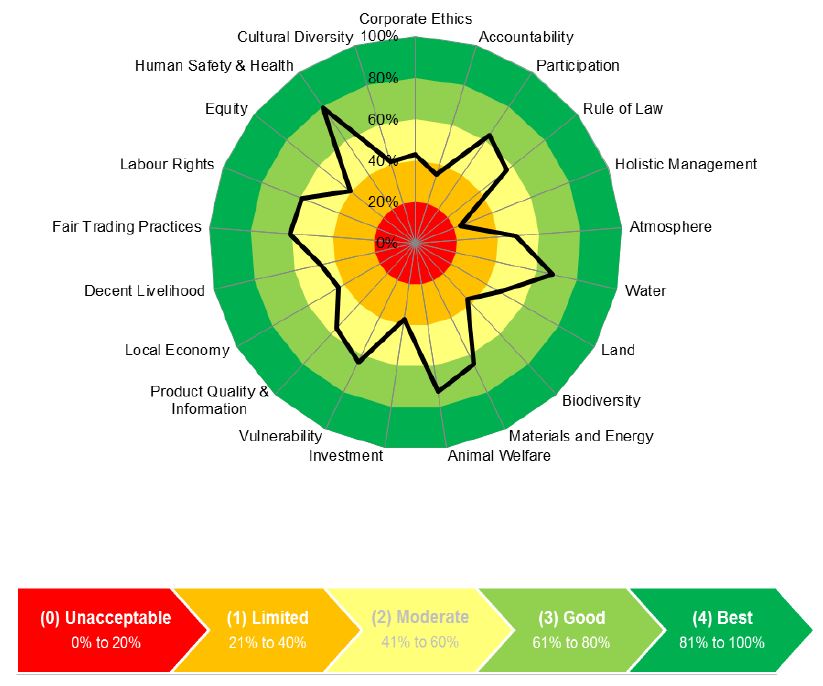Methods
Summary
- I will first conduct a literature review to identify, collect and summarize known and relevant issues surrounding present-day wheat production in the Midwest.
- Next, I will select and visit 20-25 farms in North and South Dakota, Kansas, Minnesota and Nebraska. The following map provides an overview of where the major wheat varieties are grown:
 Image 1: U.S. Wheat Associates, accessed on 12-Feb-17
Image 1: U.S. Wheat Associates, accessed on 12-Feb-17 - At each farm I will assess their sustainability using a comprehensive framework (SAFA) and application tool (SMART). This tool considers 327 indicators across governance, environmental, economic and social dimensions. The following graphic abstracts this approach:
 Image 2: Food and Agriculture Organization of the United Nations, accessed on 12-Feb-17
Image 2: Food and Agriculture Organization of the United Nations, accessed on 12-Feb-17 - I will also tour the farm and interview the farmer.
Challenges
Two main challenges confront me; both are embedded in communication:
First, the meaning of sustainability is not yet commonly agreed upon. Its recent surfacing into our vernacular makes it vulnerable to misuse, misunderstanding and intentional obscurantism. This may take the form of ‘green washing’ or a one-dimensional conceptualization. More time and awareness is needed before sciences and society reach an agreement on its meaning and significance.
Second, my research efficacy is potentially challenged by farmers’ perception of me as an ‘outsider.’ When I visit their farm, I am a guest and they are the expert. I will therefore be confronted with having to balance and synthesize my background knowledge with their expertise. Many additional factors influence this dynamic. I am young, a non-resident of their region, a beginner farmer, researcher, short-term visitor, etc. Maintaining a consistent, open, respectful and honest exchange is essential for the credibility of my findings.
These two perceived challenges are addressed in an analogous research initiative that took place in Alberta, Canada:
Pre Analysis Plan
For each farm, SMART results of the possible 58 SAFA themes assessed will be evaluated on a scale of 0 (unacceptable) to 4 (best) and summarized in visual (radar charts) and written form (Image 3). This will help to articulate the enterprise’s level of sustainability achievement. It will also enable easy communication of pairwise comparisons between dimensions, themes and subthemes of a single farm and between multiple farms (e.g. conventional and organic). Overall sustainability performance will be compared against the known sustainability issues found in the literature review. The general performance of wheat producing farms in the observed region will be discussed.
Differences across assessment results will be identified using statistical analysis (i.e. a one-way ANOVA test). This may contribute to identifying trade-offs and synergies in the sustainability performance of a typical wheat producing farm in the Midwest USA. Lastly, risk analysis using Monte Carlo simulations will determine how the assessor’s (my) different assumptions may have affected the outcomes.
Protocols
This project has not yet shared any protocols.
